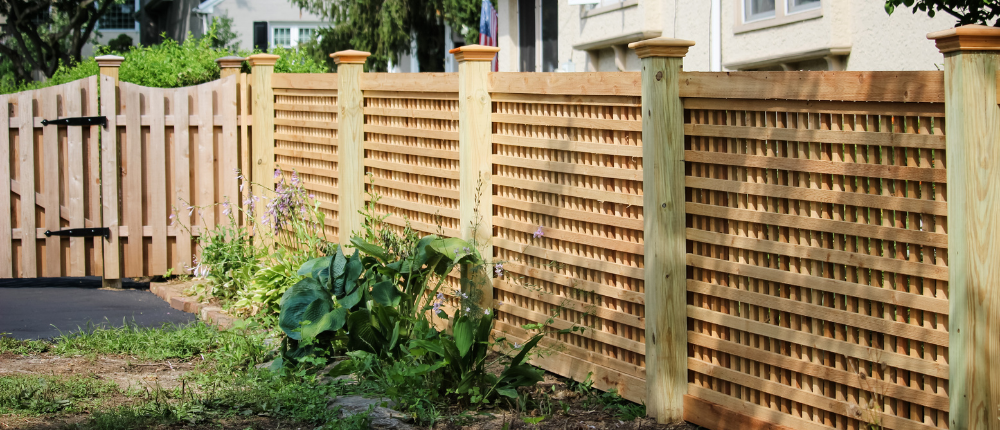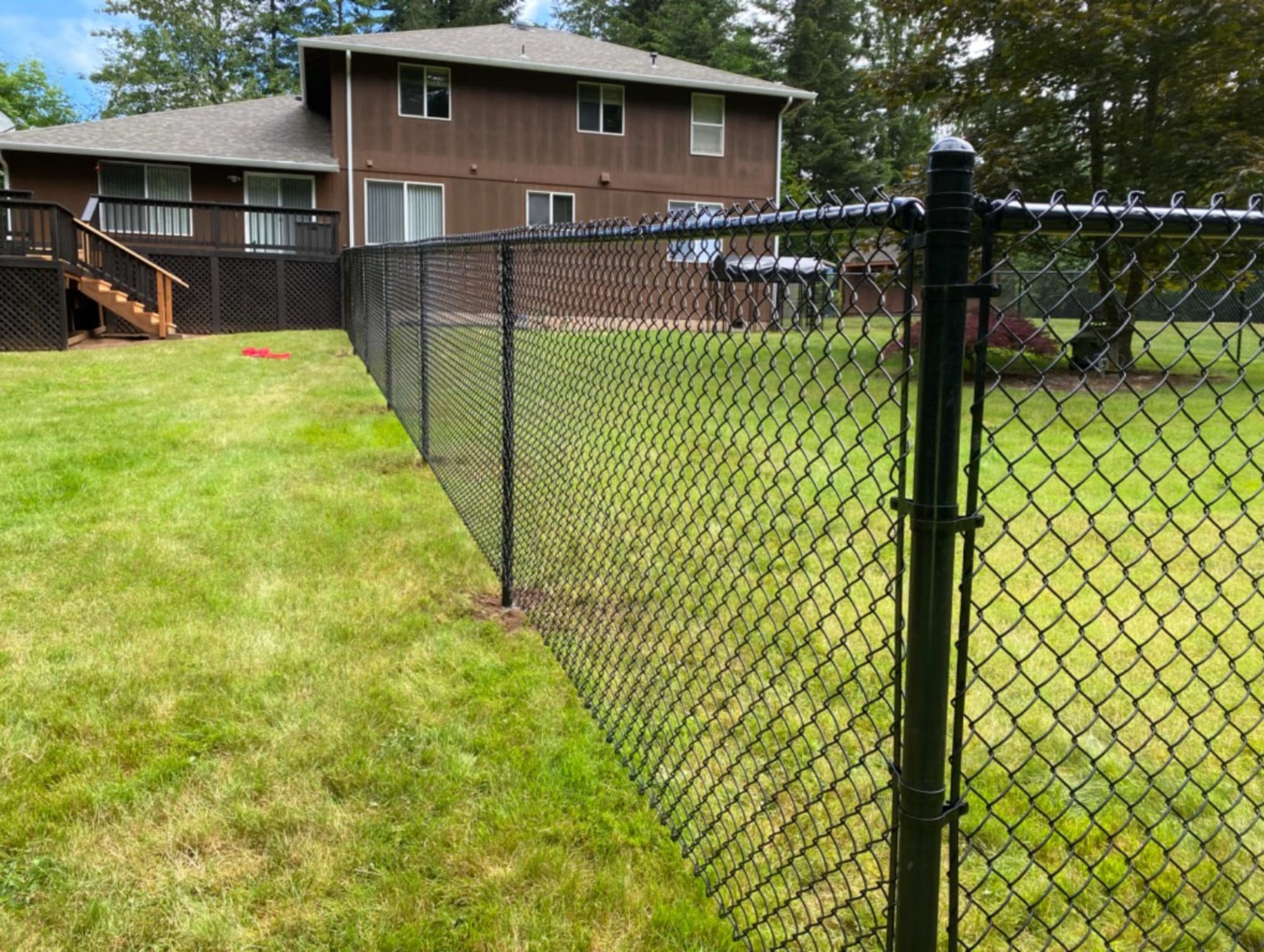All Categories
Featured
When picking a fencing for your residential property, it's essential to think about elements like price, toughness, maintenance, and aesthetic charm. Three of the most popular materials for property and business fences are wood, light weight aluminum, and plastic.
Timber Fence. Pros:
![]()
Natural Visual: Timber fences are known for their traditional, natural appearance. They can quickly blend into most landscapes and enhance the beauty of your home or service. Whether you're going for a rustic look or an extra polished surface, timber can be personalized with paint, discolor, or sealant. Personalization: Timber is among one of the most flexible products, permitting a wide range of designs, such as picket fences, personal privacy fencings, and ranch-style rooms. It's simple to adjust the style to fit the details demands of your home. Affordable: Normally, timber fencings come with a lower preliminary expense compared to vinyl or light weight aluminum, making them a cost-effective option for those on a budget. Cons:
Upkeep Needs: Timber fencings need routine maintenance to maintain their charm and capability. This consists of staining or paint to protect against rot, termites, and climate damages. Without proper treatment, timber can degrade in time. Shorter Lifespan: Contrasted to vinyl or light weight aluminum, timber fences have a tendency to have a shorter life-span, especially in locations with severe climate. Harsh problems, such as hefty rain, humidity, or snow, can create wood to degrade quicker. Prone to Damage: Wood fencings are vulnerable to harm from insects, including termites, as well as natural wear from weather. They might additionally warp or split otherwise effectively maintained. Plastic Fence. Pros:
Low Upkeep: One of the major benefits of plastic fencings is that they need minimal upkeep. Unlike wood, vinyl doesn't need to be painted, sealed, or tarnished. It's resistant to fading, staining, and cracking, which saves time and money on maintenance. Durability: Plastic is understood for its capacity to withstand extreme climate problems without weakening. It's unsusceptible parasites like termites, and its resistance to wetness and UV rays ensures it continues to be looking great for many years. Durable: A vinyl fence can last up to thirty years or even more, making it an excellent long-lasting investment. Lots of suppliers supply guarantees, further enhancing its value. Variety of Styles: Vinyl fences are readily available in different shades and styles, consisting of those that mimic timber. You can select from privacy, picket, or ornamental designs, supplying flexibility to match your home or service. Disadvantages:
![]()
Higher Upfront Price: Plastic fences have a tendency to have a greater initial price than timber. While the long-term cost savings on maintenance are significant, the in advance investment might be a deterrent for some house owners. Minimal Customization: Vinyl fencings come in typical designs, and while colors and styles are different, you might not have as much versatility for customization contrasted to wood. Cracking in Cold Climates: While vinyl is resilient, in very cool environments, it can become brittle and fracture upon influence, which can be bothersome in locations with severe winters. Aluminum Fencing. Pros:
Reduced Maintenance: Aluminum fencings are known for their low-maintenance requirements. Unlike wood, light weight aluminum does not corrosion or wear away, and it does not require to be painted or sealed. This makes it a terrific choice for those who desire a convenient alternative. Resilience and Toughness: Light weight aluminum is a robust material that stands up well to harsh weather. It's an excellent option for coastal areas where saltwater deterioration is a problem, as it's resistant to rust. Visual Charm: Light weight aluminum fences supply a tidy, classy look, frequently used for decorative purposes. They're available in different styles, including decorative styles, and can include a premium feel to your property. Security: Light weight aluminum fencings are long lasting and deal wonderful protection, especially when mounted with locks or gateways. Their tough construction offers a trusted obstacle versus unwanted access. Cons:
![]()
Greater Preliminary Expense: Light weight aluminum fencings often tend to be much more pricey than wood, specifically if you opt for attractive designs. The in advance price may be excessive for some. Less Personal privacy: Light weight aluminum fences usually have broader gaps in between the slats, which implies they offer much less personal privacy than wood or vinyl fences. Light weight aluminum might not be the best option if privacy is a priority. Nicking Concerns: While light weight aluminum is rust-resistant, it is vulnerable to flexing or nicking if struck with pressure. A car mishap or hefty influence can cause long-term damage to the fencing. Which Fence Material is Right for You? Selecting the best fencing depends on a number of elements, including your budget plan, design choices, maintenance ability, and the atmosphere in which you live. If you desire a natural appearance and are prepared for normal maintenance, timber might be the right alternative.
Eventually, each fencing product has its cons and pros, so it is essential to assess what matters most for your certain needs. Consider the climate, the degree of privacy you require, and exactly how much upkeep you're willing to devote to, and you'll find the excellent fence for your residential property.
Timber Fence. Pros:

Natural Visual: Timber fences are known for their traditional, natural appearance. They can quickly blend into most landscapes and enhance the beauty of your home or service. Whether you're going for a rustic look or an extra polished surface, timber can be personalized with paint, discolor, or sealant. Personalization: Timber is among one of the most flexible products, permitting a wide range of designs, such as picket fences, personal privacy fencings, and ranch-style rooms. It's simple to adjust the style to fit the details demands of your home. Affordable: Normally, timber fencings come with a lower preliminary expense compared to vinyl or light weight aluminum, making them a cost-effective option for those on a budget. Cons:
Upkeep Needs: Timber fencings need routine maintenance to maintain their charm and capability. This consists of staining or paint to protect against rot, termites, and climate damages. Without proper treatment, timber can degrade in time. Shorter Lifespan: Contrasted to vinyl or light weight aluminum, timber fences have a tendency to have a shorter life-span, especially in locations with severe climate. Harsh problems, such as hefty rain, humidity, or snow, can create wood to degrade quicker. Prone to Damage: Wood fencings are vulnerable to harm from insects, including termites, as well as natural wear from weather. They might additionally warp or split otherwise effectively maintained. Plastic Fence. Pros:
Low Upkeep: One of the major benefits of plastic fencings is that they need minimal upkeep. Unlike wood, vinyl doesn't need to be painted, sealed, or tarnished. It's resistant to fading, staining, and cracking, which saves time and money on maintenance. Durability: Plastic is understood for its capacity to withstand extreme climate problems without weakening. It's unsusceptible parasites like termites, and its resistance to wetness and UV rays ensures it continues to be looking great for many years. Durable: A vinyl fence can last up to thirty years or even more, making it an excellent long-lasting investment. Lots of suppliers supply guarantees, further enhancing its value. Variety of Styles: Vinyl fences are readily available in different shades and styles, consisting of those that mimic timber. You can select from privacy, picket, or ornamental designs, supplying flexibility to match your home or service. Disadvantages:

Higher Upfront Price: Plastic fences have a tendency to have a greater initial price than timber. While the long-term cost savings on maintenance are significant, the in advance investment might be a deterrent for some house owners. Minimal Customization: Vinyl fencings come in typical designs, and while colors and styles are different, you might not have as much versatility for customization contrasted to wood. Cracking in Cold Climates: While vinyl is resilient, in very cool environments, it can become brittle and fracture upon influence, which can be bothersome in locations with severe winters. Aluminum Fencing. Pros:
Reduced Maintenance: Aluminum fencings are known for their low-maintenance requirements. Unlike wood, light weight aluminum does not corrosion or wear away, and it does not require to be painted or sealed. This makes it a terrific choice for those who desire a convenient alternative. Resilience and Toughness: Light weight aluminum is a robust material that stands up well to harsh weather. It's an excellent option for coastal areas where saltwater deterioration is a problem, as it's resistant to rust. Visual Charm: Light weight aluminum fences supply a tidy, classy look, frequently used for decorative purposes. They're available in different styles, including decorative styles, and can include a premium feel to your property. Security: Light weight aluminum fencings are long lasting and deal wonderful protection, especially when mounted with locks or gateways. Their tough construction offers a trusted obstacle versus unwanted access. Cons:

Greater Preliminary Expense: Light weight aluminum fencings often tend to be much more pricey than wood, specifically if you opt for attractive designs. The in advance price may be excessive for some. Less Personal privacy: Light weight aluminum fences usually have broader gaps in between the slats, which implies they offer much less personal privacy than wood or vinyl fences. Light weight aluminum might not be the best option if privacy is a priority. Nicking Concerns: While light weight aluminum is rust-resistant, it is vulnerable to flexing or nicking if struck with pressure. A car mishap or hefty influence can cause long-term damage to the fencing. Which Fence Material is Right for You? Selecting the best fencing depends on a number of elements, including your budget plan, design choices, maintenance ability, and the atmosphere in which you live. If you desire a natural appearance and are prepared for normal maintenance, timber might be the right alternative.
Eventually, each fencing product has its cons and pros, so it is essential to assess what matters most for your certain needs. Consider the climate, the degree of privacy you require, and exactly how much upkeep you're willing to devote to, and you'll find the excellent fence for your residential property.
Latest Posts
Don’t Miss Exclusive Auto Repair Offers in Chicago at Montclare Auto Repair
Published en
1 min read
Improve Your Home's Exterior with Weathercraft's House siding Solutions
Published en
1 min read
Safeguard Your Financial Investment with Professional Rain Gutter Installation
Published en
1 min read
More
Latest Posts
Don’t Miss Exclusive Auto Repair Offers in Chicago at Montclare Auto Repair
Published May 27, 25
1 min read
Improve Your Home's Exterior with Weathercraft's House siding Solutions
Published May 23, 25
1 min read
Safeguard Your Financial Investment with Professional Rain Gutter Installation
Published May 20, 25
1 min read